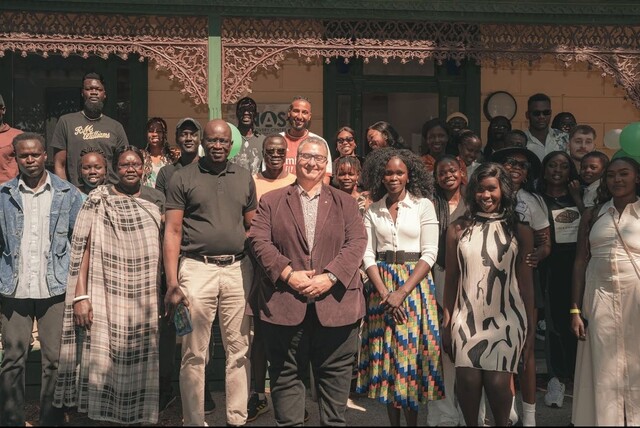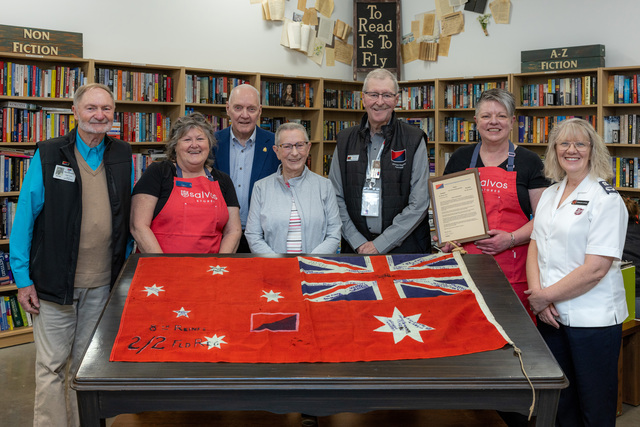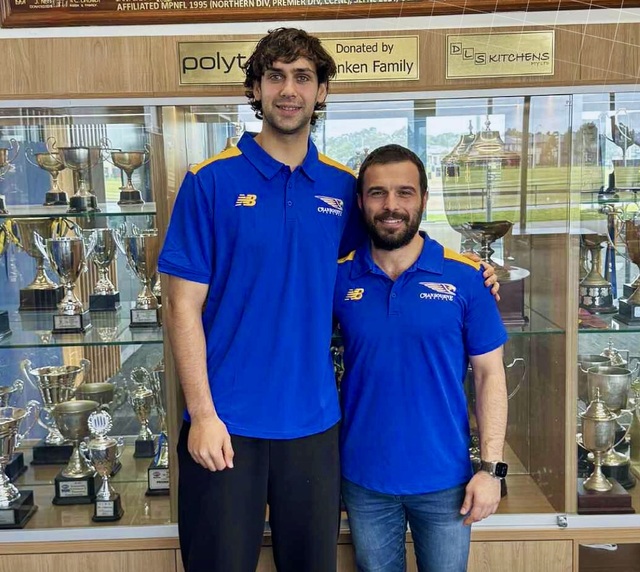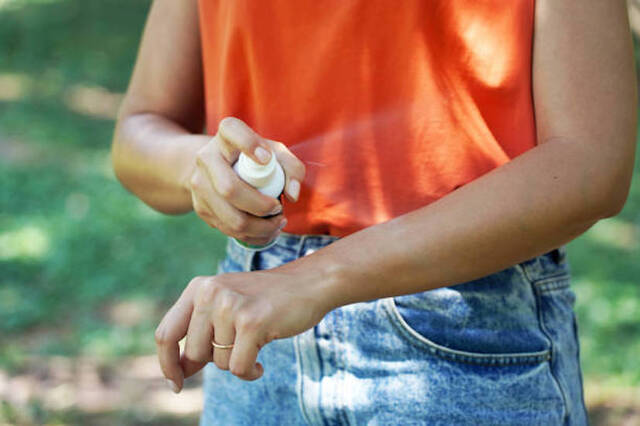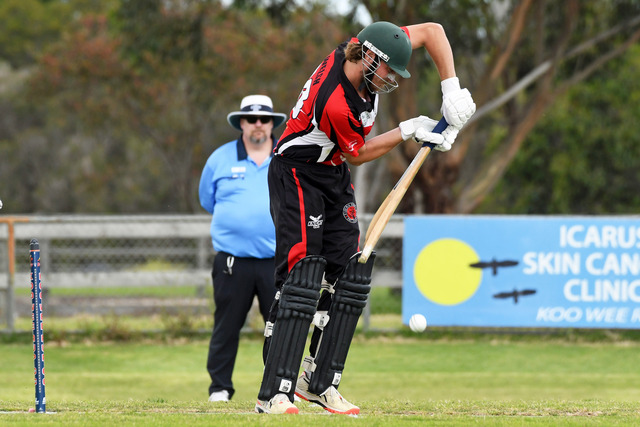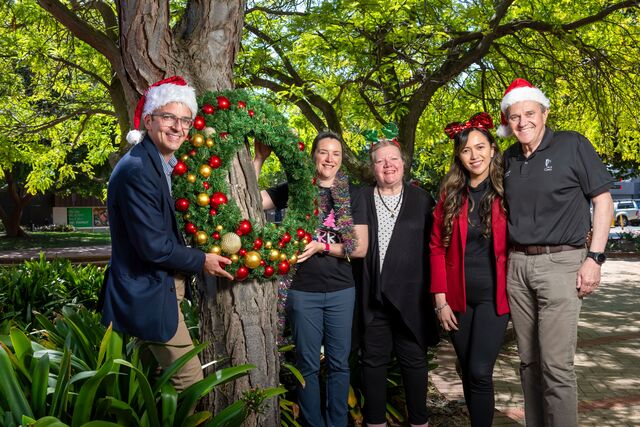Despite being a newcomer to the field, Nas Recovery Centre (NRC) has taken a step forward in offering innovative and culturally aware support to African-Australian youth, adults, and families in Casey and greater Melbourne.
NRC held its first Together We Rise mental health fundraiser at its Path2home Centre in Cranbourne West on 17 March, collecting more than $1000 in funds.
NRC partnered with Victoria Police, Multicultural Consulting Services, Happy Africans Variety Store, Community Abundance Inc, Mo Social Impact, Next Gen Unite, Stand Out Basketball, AYI, African United Farm, Nasben, Glowbal Holistic, Urban Dot, Mayan Bol Mayan, DJ Friday, DJ Akoy, DJ Bayside, Check-in With Rose, Kingbarber, Mac Thot, Point of View TV, and Macharpix.
South Eastern Metropolitan MP Lee Tarlamis also attended the fundraising.
Residents and visitors enjoyed the live music, food, fun games, activities, stalls, motivational speakers, and networking opportunities.
Managing director Nyachan Nyak said more than 100 locals and visitors attended the fundraiser and made a tangible difference.
“The Africans we engaged with were people that are passionate and know there is an issue in our community that needs a collective approach,” she said.
“Although it was far for them to come, they needed to be here and it was their way of showing their commitment to our collective social impact and their concern for the wellbeing of Africans within Australia, Melbourne.
“The event brought everybody together because the whole theme is Together We Rise. Africans are collective beings in general, there is a lot of historical stuff that we have experienced collectively from pain to success. So, we believe in the idea that it will take a collective approach of all Africans that are concerned with people who are struggling with addiction and mental health together.”
A key driving force behind the fundraiser is the ongoing barriers that prevent individuals from accessing the treatment they desperately need.
“When we go outreach to meet a client, they often have nothing on them and no money,” Ms Nyak said.
“I recently dropped a client to St Kilda to rehab and that client said he couldn’t pack because he was homeless and didn’t have a suitcase.
“I told the client that in four days I would come back to drop a suitcase and some clothing, so these are emergency needs for clients we are fundraising funds for.”
The money raised will directly cover the essential needs of clients, including transportation to programs, and access to vital medication, meals, and other basic expenses during their outreach support to those experiencing homelessness.
Youth and community practitioner and mental health advocate Mahamed Ahmed said there were many factors in life that could have an impact on the mental health of young African Australians.
“Drugs and alcohol are a big part of criminality in the east side,” he said.
“The pressures of African young people are increasing, and social media hasn’t helped the situation. Young people are more prone to anxiety, depression, and suicide rates are soaring. But our African young people face additional barriers, their families don’t quite understand or fully comprehend the seriousness of mental health and how to support a young person who’s battling drug and alcohol addiction or mental health.
“Our African families are not at that point yet, they are not as well equipped as their non-African peers and families unfortunately. They have their own traumas that’s been undiagnosed and unsupported which adds another layer of complexity.
“The intergenerational trauma we carry from our parents’ trauma, fleeing their war-torn country, having to move to a foreign country like Australia, then having to deal with racism and discrimination, different language, foods, the lifestyle, and socials. Services like Nas Recovery Centre become so important because our kids have that additional area layer.”
Motivational speaker, youth, and mental health worker Mayen Bol Mayen added that young people were battling an identity crisis.
“The majority of young people probably came from Kenya, Egypt, and Uganda and there’s that culture clash. The ability to fit in society is hard and at the same time, families are expecting more from you,” he said.
“The things we see daily as well, someone that is close to you can be going through it to the point where they can lose their life and for you to hear the news of that, it does affect you. Some people don’t have the mental capacity to comprehend all those things.”
Mr Ahmed said the best part of the fundraiser was “seeing the community come together and supporting a service that we can’t afford to lose”.
“The response from the community was overwhelmingly positive because everybody understands the importance of having a community asset like NRC,” he said.
Mr Ahmed was pleased the fundraiser attracted the African community, however it lacked support from mainstream cohorts.
“There were no non-African Australian people, like AOD mainstream services and mental health services,” he said.
“It would have been nice to see mainstream drug and alcohol services attend the fundraiser, that was my observant lens. I would’ve liked to see mainstream services investing and supporting culturally and community-led approaches.”
Just like it takes a village to raise a child, Mr Ahmed said it was not just the responsibility of NRC to advocate for African Australians who were going through a rough patch or a challenge in overcoming drug and alcohol addiction or mental health.
“We need to make sure that if we can’t donate the funds, we need to rally behind Nas and services like Nas with our voices, petitions, and letters to MPs,” he said.
“My message is that we need to get behind these community assets like NRC because we never know when we might need it, or our children might need it.
“We need NRC to grow and other services to appear across the state that are going to fill the void and support our young people or community members that are going through significant challenges.”
Ms Nyak was satisfied with those who had given and encouraged anyone who could help, to still invest in clients’ needs.
“If we turn a blind eye, it’s going to impact the system because more people will have to find themselves at the hospital, work productivity, death and loss,” she said.
“When one person has an issue with addiction or mental health, there’s another 10 people affected by it – their sister, brother, mother, cousins, employer, neighbour, schools.
“So, supporting one person means your daughter will support another innocent person who is also struggling.”
Anyone seeking help can contact beyondblue on 1300 224 636 or beyondblue.org.au or Lifeline on 13 11 14. In an emergency, call 000.


